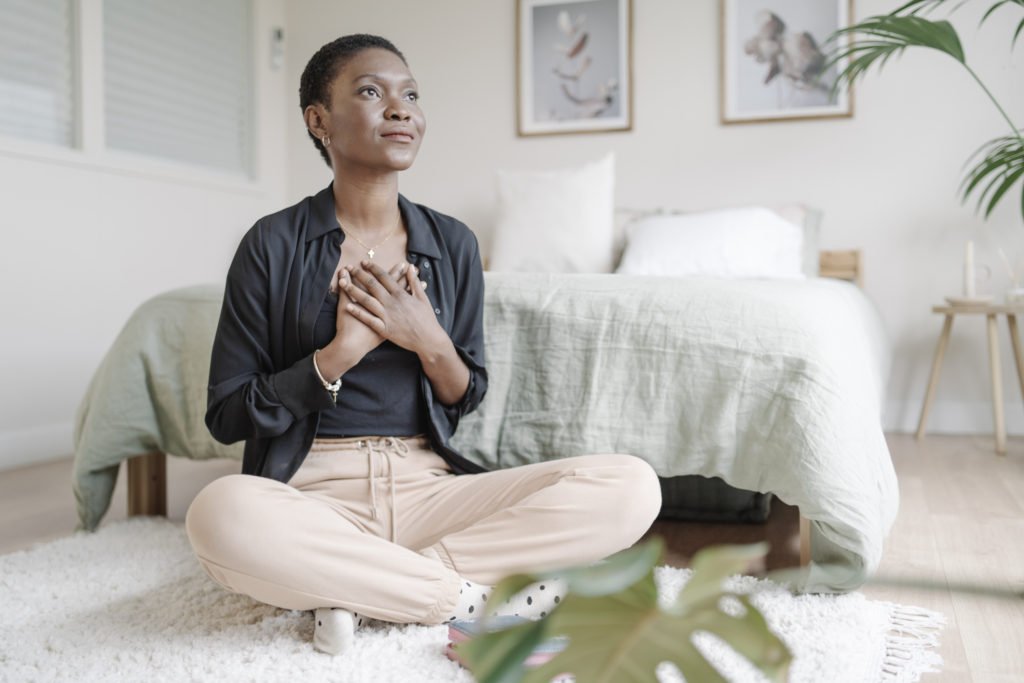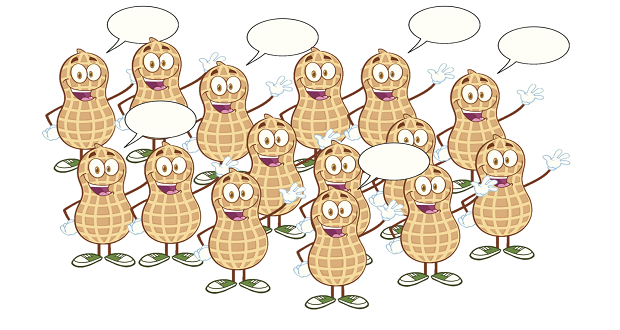“To love well is the task of all meaningful relationships.”
— bell hooks
With a swell of pride and deep respect, I have been cheering on the growing voice and influence of Black leaders, consultants, journalists, authors, and others committed to social change. Yet, as a Black woman leader, social change consultant, and healing-centered coach, I frequently and disturbingly hear about, observe, experience, and surely take part in behaviors that exclude, diminish, silence, and over-critique other Black people.
For the past few years, I have been asking myself: In the midst of advocating for, facilitating, and leading toward racial equity, inclusion, and social change, how can we as Black leaders address our own internalized anti-Blackness and racialized harm? I’ve also wondered: How might focused and communal effort to offer care and love to Black people manifest as collective well-being and success?
In the midst of advocating for, facilitating, and leading toward racial equity, inclusion, and social change, how can we as Black leaders address our own internalized anti-Blackness and racialized harm? Share on XGeorge Floyd’s murder — aired during a period of sequester when we could watch the senseless death in near real time — was not just a poison arrow. Suddenly, those who never before bore the burden of racial injustice were jolted, pushed into realization, and awakened to the importance of engaging in the global arousal against racial violence and injustice.
This galvanization raised the gate for renewed conversations about race, identity, oppression, marginalization, and white culture dominance. Organizations across the spectrum of equity awareness and competence began to seek diversity, equity, justice, and inclusion supports for their mission-driven priorities and internal operations.
Many of these organizations, seeing anew — or for the first time — glaring misalignment in mission and management, have been reaching out to highly qualified Black leaders, consultants and others who have long been poised to steward these journeys. As ready as we have been to coach, plan, assess, and repair, racial justice work remains as psychologically and emotionally complex and entangled as it is essential and timely. One complication is that as Black leaders, we must face the ways in which race-based caste systems have impacted our own beliefs and behaviors toward other Black people. As opportunities for Black-led social change grow, we must marry external opportunity with internal examination of how we too exhibit and foster racialized harm — specifically, internalized anti-Blackness, and even more specifically, misogynoir. To be effective stewards of racial justice, Black agents of social change must work to consciously live the values of racial justice and inclusion; to dismantle our and our organizations’ internalized or subconscious anti-Blackness; and to embody and extend professional love and respect to each other.
Certainly, all groups experience interpersonal and internalized conflict, and many non-white groups adhere to values typical of dominant white culture or caste systems. But as people who most frequently experience trauma and harm solely based on color (and compounded by intersectional identities), we must answer tough questions about how we also carry out acts of racialized oppression, typically steeped in unconscious belief that proximity to whiteness is proximity to goodness and to success.
How much more meaningfully can we as Black leaders advance social change if we:
- Ground in accurate understanding of Black history in the United States?
- Anchor in paradigms for the collective well-being and success of Black people?
- Uplift the humanity of Black people and especially of Black women, who are most frequently maligned in their leadership?
- Center the healing of Black communities?
Is it possible for us to love US — and each other — so much that we can express:
- A love that says, hey, I know you can do better
- A love that says, I feel your pain
- A love that says, we do not treat our Black colleagues this way
- A love that says, I made a mistake, thank you, and I am sorry
- A love that says, we are strong together, and there is room for all of us
- A love that says, here is how you will grow, or, this is not the place where you will soar
- A love that stays silent and allows others to fill the space
- A love that says, I need your help, you are the expert, and I trust you
- A love that says, I caused harm, and I take responsibility for it
- A love that says, no… or yes
- A love that says, there is no one way; we can all be right
- A love that says, Black leaders, we can and must do better
To be sure, this is a knotty issue — “family business,” some might say. It must not be weaponized against us; every group has healing and repair to do. My hope is that this piece will open up more dialogue and reflection. In the meantime, I offer below 10 ways in which we might begin to build Black-centered leadership and love — for Black people, and ultimately, for all who are systemically oppressed:
- Pause. Just stop. For an hour, a day, a weekend, or a week. Reflect and write about the ways in which you show up or do not show up as a Black leader who loves and uplifts Black people (this does not mean you cannot love and uplift non-Black people). How does love shift according to gender identity, sexual orientation, nationality, educational status, economic class, skin tone, and/or age? How does it shift in the presence of non-Black people? Reflect on your personal experiences of race and how they impact your leadership beliefs and actions.
- Love and care for yourself. Honor your accomplishments, name your achievements and qualifications. You probably worked twice as hard as others to get where you are, and deserve to be here. Set boundaries so you have greater enjoyment of your life outside of work. You deserve love and care as well.
- Share the love. Honor others’ accomplishments. Meet them where they are. For sure, not everyone will accompany you for the long haul, but for the time that they are with you, offer an authentic sense of care and solidarity.
- Reflect specifically on your relationship with Black women. What are the particular beliefs that influence the way you see and interact with them? How is this different from the ways in which you see and interact with white women and other women of color? Who do you tend to gravitate toward or from and why?
- Invest in a skilled coach to help you walk this journey and dig deeply.
- Participate actively and consistently in facilitated affinity spaces. You are not alone in this.
- Co-design with your team a set of values that reset norms for how Black people are humanized, included, seen, and heard within your organization.
- Continue and expand on this work within your organization with the support of an experienced facilitator.
- Ensure that your decision-making reduces bias and harm toward Black people, especially frontline and junior staff.
- Make publicly known the ways in which you, your team, and your organization center and uplift the humanity and success of Black people.
We Black leaders of social change represent a microcosm of our society; fixing anti-Blackness and other race-based harms should start with our acknowledgment that what is broken in society is in some ways also broken within us. The fix starts with awareness; it shifts with love.
Co-design with your team a set of values that reset norms for how Black people are humanized, included, seen, and heard within your org. Continue this work with the support of an experienced facilitator. Share on X




















